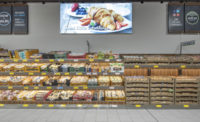Private label has been stepping up its game lately, and people—particularly millennials—are starting to take notice. Retailers are adding more premium items to their store brand lines, and people are actively seeking to buy private label products instead of choosing them just because they are less expensive than the national brand equivalent (NBE).
Big picture trends
“From our experience, the word ‘trend’ is inextricable from the definition of private label development,” says Sam Avshalom, co-founder and COO, Variety Fun, New York. “Most business owners who decide to pursue private labeling in the e-commerce sphere are dreamers and believers. For the past decade, we saw many new trends, such as the keto diet or veganism, emerge. Someone followed and found a passion in these lifestyles and built a brand out of it.”
For private label, one major trend includes the expansion of premium, value-added lines in almost all food categories, says Brian Sharoff, president, Private Label Manufacturers Association (PLMA), New York. “This reflects the type of upscale retail formats, which are expanding, as compared to traditional supermarkets, whose share of food expenditures is declining.”
In the snack department, top trends include more new, different—often exotic—flavor profiles, says Sharoff. And in bakery, clean labels and gluten-free continue to be important, with the addition of artisanal product concepts and snack-size packaging. “All of these consumer preferences are found more easily in retailer-created products than in national brands, which generally have to uphold mass market products, which leave little room for localization or special needs,” he says.
“The Power of Private Brands,” a 2018 report released by IRI and FMI, notes that private label lines have become full-fledged brands in their own right, and that younger shoppers are the most engaged with private brands. Consumers perceive that their engagement with private brands is even greater than it actually is, and retailers have new opportunities to enhance trial, marketing and merchandising to further boost consumer engagement.
“The primary driver of these trends is generally said to be millennials, but that only tells a partial story,” says Sharoff. “Generation X, which makes up the vast majority of supermarket shoppers, is just as concerned about health and taste. I think it’s a mistake to market to millennials as if they are the only ballgame in town. Smart marketing should aim at the unique interests of all of the major demographic groupings.”
The authors of “The Power of Private Brands” report state that younger shoppers are the most critical about private brand packaging, and also that Generation X is the largest spender on own brand products. However, broad assumptions about private brands don’t hold up across age groups and product categories, and it’s necessary to “dig deeper into the details” for more information.
Shifting preferences
“We are seeing more requests from retailers for private label products that are unique and innovative, which ultimately helps them provide a differentiated experience to the end consumers shopping in store,” says Jacque Taylor, director of marketing, Lehi Valley Trading Co., Mesa, AZ. “Additionally, retailers are seeking private label product solutions that cater to their consumers’ needs—not just offering the cheapest ingredients and ultimately the cheapest price.”
All products in Lehi Valley’s Snackworthy line are considered “better-for-you” (their tagline is “Simply Free From 100+ Unworthy Ingredients”), and they retail from $1.99 to $5.99, which appeal to millennial consumers’ need for value. “This concept has been positively received by retailers across the spectrum, and we now have several retailers offering this better-for-you line under their private label brand, including a major retail grocer,” says Taylor. “This is one example of the type of innovation that retailers are looking for from their supplier partners, to help them develop a private label brand with improved quality, variety, value and ultimately relevancy to their end consumer.”
Avshalom notes that brands that specialize in creating private label food lines are thriving, thanks to a strong demand for their low-cost production, branding identities, and significant variety. Snack and bakery industries are booming with the development of new flavor combinations. “Wider growth in private label is fueled by a digital economy that allows for consumers to comfortably choose, based on their needs,” he adds. “Seventy percent of U.S. households agree that private label brands are an adequate alternative to name brand products, and these smart consumers are taking advantage of the moment.”
Consumers are looking for products that reflect their lifestyle, and grab-and-go continues to be popular, says Michael Girkout, director of sales and marketing, Alvarado Street Bakery, Petaluma, CA. “Grab-and-go continues to be a growth center, and manufacturers would be wise to bring these options to their private label partners. Health and wellness will continue to be important factors to be considered when developing new items.”
Girkout notes that shoppers will continue to look for products that meet their specific dietary and nutritional needs. “Wellness is a category that isn’t going away, and something that should be considered when developing new items for ‘own-brand’ products,” he explains. “If a retailer is going to put their name on a product, it better meet or exceed the national brand equivalent.”
Greg Kuczaj, R&D innovation manager, Nation Pizza and Foods, Schaumburg, IL, says that they’ve been inundated with request from private label customers. “As growth continues in this segment, many private label retailers are looking to offer more interesting products to their current consumers. Whether this is something new they see as on-trend in pizza—i.e., a new flavor, or a crust type like Detroit-style or cauliflower—the need to expand their private label offerings to stay relevant in the segment is critical.”
Kuczaj says that whatever the new emerging trend is, the more requests they get from retailers seeking a lower-cost version exemplifying that trend—for instance, a lower-cost version of a wood-fired pizza compared to the NBE, but offering the same “perceived value” to the shopper. He also says that the speed to market is also in high demand, so they’re pressured to turn new ideas and concepts into fully commercialized ideas in much less time that was afforded previously.
“The need for product speed to market is placing increased pressure on development teams to get it right sooner rather than later,” Kuczaj comments.
What’s next
“Private label is open to take more calculated risks, so they will continue to rely on channel expertise for recommendations in innovation,” notes Kuczaj. “There will be more diverse offerings across all food categories, and more trial-and-error in store will continue to push manufacturers to speed up their processes.”
This ups the innovation game for snack and bakery companies working with retailers on private label lines. “Retailers seem to be looking for more innovation in the better-for-you space, especially to slot into their natural/organic and premium-tier brands,” says Gunther Brinkman, vice president, contract manufacturing, Ideal Snacks Corp., Liberty, NY. “This segment of private label snacks has never had much NBE, but we seem to be swinging even further toward unique offerings.”
Avshalom suggests that clean-label private label products will continue to grow in popularity. “Private label is no longer relegated to a reluctant choice for the financially strapped—it has branched out into your favorite foods to become the intelligent choice for savvy shoppers. Younger customers are flocking to unbranded, ‘clean-label’ products—and the no-frills mentality that such products represent.”
Younger consumers today are extremely receptive to upstarts, notes Avshalom, so the proliferation of private label brands with a compelling digital presence and wide assortments of products will continue to grow.
Unlike their baby boomer parents who tend to be more brand-loyal, millennial consumers are driven by value, says Taylor. “Consumers today have a more-positive perception of the quality and enhanced perceived value of private label brands—especially the most-powerful consumer block, millennials. As they continue to have positive experiences with private label brands, it will only serve to reinforce their perception of private label brands as ‘high quality.’”
The key for a private brand’s long-term success is to ensure laser focus on delivering equivalent quality at a competitive price, coupled with innovation that fills the gap of unmet consumer needs—specifically versus the NBEs that consumers, in many cases, will use as the benchmark, Taylor remarks. “We see continued growth for private label, as consumer awareness/adoption increases, and as retailers continue to develop a strong and compelling ‘brand story’ that can be leveraged throughout multiple consumer touchpoints—packaging, advertising, social media, experiential—to build powerful store brands.”
When a consumer trusts a private label brand, they are saying that they trust the name on the package—they trust the retailer who brought them that item, and their expectation is that the quality must be of the highest degree, “or else they wouldn’t have put their name on it,” says Girkout.
New products that add value to a category will always be welcome, adds Girkout. “When it comes to private label programs, it’s not always about what’s now—but rather, what’s next.”








